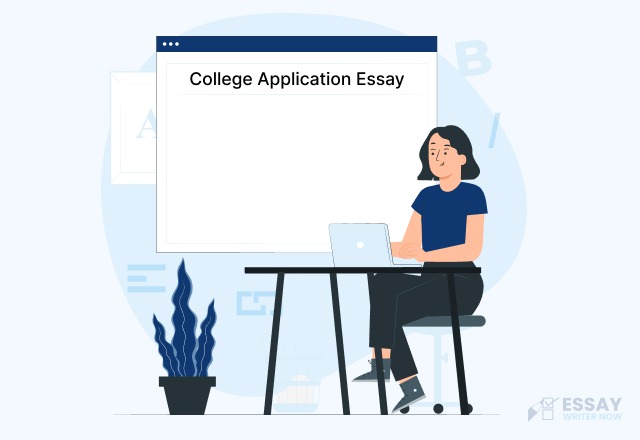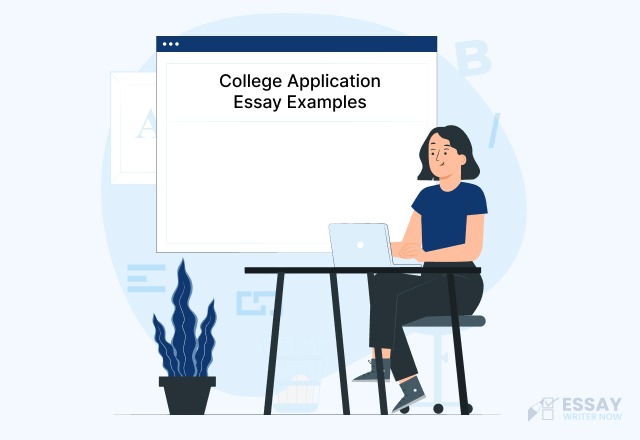Importance of the College Application Essay
The college application essay gives admissions officers insights beyond your GPA and test scores. It's a chance to showcase your personality, strengths, and readiness for college. This essay can demonstrate your potential for success in ways that numbers alone can't.
A study by the National Association for College Admission Counseling (NACAC) found that 56.4% of admissions counselors indicated that their institutions place "considerable" or "moderate" importance on the essay. This trend is particularly significant for private schools and more selective colleges, where the essay plays a crucial role in the admissions process.
Tips for Writing a Strong College Application Essay
Here are tips you can follow to write a strong college application essay:
1. Pick a Meaningful Topic
Choosing a topic that holds personal significance will make your essay more authentic and engaging. Reflect on experiences, interests, or values that are important to you. When you write about something you genuinely care about, your passion and personality will shine through.
2. Keep the Focus on You
Your college application essay should center on you, not someone else. Even if you discuss an influential person or event, the main focus should be on how it impacted you and shaped who you are. This is your opportunity to highlight your unique qualities and experiences.
3. Use Specific Details and Examples
Specific details and examples make your essay more vivid and memorable. Instead of saying you have leadership skills, describe a time when you led a project or team. These concrete examples help paint a clearer picture of your character and achievements.
4. Reveal Something Unique About Yourself
Admissions officers read thousands of essays, so it's important to stand out. Share something unique about yourself—whether it's a niche hobby, a unique talent, or an unusual experience. This uniqueness can make your essay more interesting and memorable.
5. Tell a Story
A compelling story can make your essay more engaging. Focus on one or two strong anecdotes that reveal your character, values, and personal growth. Stories are more relatable and easier to remember than lists of achievements.
6. Edit and Proofread
Editing and proofreading are crucial steps in the writing process. Ensure your essay is clear, concise, and free of errors. Consider asking a teacher, mentor, or friend to review your draft. Fresh eyes can catch mistakes and provide valuable feedback.
Ideal Length of a College Application Essay
Most college application essays need to be concise and to the point. Different application platforms and schools may have specific length requirements, so it's important to follow their guidelines closely.
- Common Application: Essays submitted through the Common App should be between 250 and 650 words. This range allows you to develop your ideas while maintaining conciseness.
Below is the full set of essay prompts for 2024–2025.
|
- Coalition Application: The Coalition App requires essays to be 500-650 words long. This length provides enough space to convey your story effectively.
Coalition Application Essay prompts (for 2024-25)
|
- Supplemental Essays: Many schools ask for additional, shorter essays. These typically range from 150 to 250 words. It's important to be even more concise and focused in these responses.
Importance of Conciseness
Conciseness is crucial in a college application essay for several reasons:
- Attention Span: Admissions officers read numerous essays. A concise essay respects their time and increases the likelihood they will read it in its entirety.
- Clarity: Keeping your essay concise forces you to focus on the most important points. This clarity makes your essay easier to understand and more impactful.
- Relevance: By sticking to the word limit, you ensure every sentence adds value. This prevents your essay from becoming bogged down with unnecessary details.
How to Stay on Topic
It's crucial to address the essay prompt directly to ensure your essay is relevant and impactful. Here are steps to help you stay on topic:
1. Understand the Prompt
- Read Carefully: Read the prompt several times to fully understand what it is asking.
- Highlight Key Words: Identify and highlight the main words or phrases in the prompt. This will help you focus on the central theme.
2. Brainstorm Ideas
- List Potential Topics: Write down several ideas that could address the prompt.
- Evaluate Each Idea: Consider how each topic relates to the prompt and choose the one that best fits and allows you to showcase your strengths.
3. Create an Outline
- Introduction: Start with a hook to grab the reader’s attention, followed by a thesis statement that clearly addresses the prompt.
- Body Paragraphs: Each paragraph should focus on a single point that supports your thesis. Include specific examples and details.
- Topic Sentence: Begin each paragraph with a topic sentence that clearly ties back to the thesis.
- Supporting Details: Use anecdotes, experiences, or facts that directly support your topic sentence.
- Conclusion: Summarize your main points and restate how they address the prompt.
4. Stay Focused During Writing
- Refer Back to the Prompt: Keep the prompt in front of you as you write your essay and regularly check to ensure you’re staying on topic.
- Stick to Your Outline: Follow your outline closely. If you find yourself going off on a tangent, refer back to your outline to stay on track.
5. Review and Revise
- Re-read the Prompt: After writing your draft, re-read the prompt to ensure your essay addresses it fully.
- Seek Feedback: Ask someone else to read your essay to see if it clearly answers the prompt. They can offer a fresh perspective and catch any off-topic content.
- Revise as Needed: Make any necessary changes to ensure every part of your essay supports your main thesis and addresses the prompt directly.
By following these steps, you can ensure that your essay stays focused and effectively answers the prompt, making a stronger impression on admissions officers.
What to Avoid in Your College Application Essay
Here are some common essay writing mistakes to steer clear of:
Grades and Test Scores
Avoid focusing on grades and test scores, which are covered elsewhere in your application. Instead, use the essay to highlight your personal experiences and qualities.
Privileged Lifestyle
Avoid discussing experiences that highlight a privileged lifestyle. Focus on relatable experiences that demonstrate qualities like resilience, empathy, and humility.
Pets
While your pet might be important to you, writing about them can be too common and fail to distinguish you from other applicants. Focus on more unique aspects of your life.
Clichés and Trite Quotations
Using clichés and overused phrases can make your essay feel unoriginal. Strive for originality by using your own voice and experiences.
Criminal Record
Discussing past missteps with the law can create a negative first impression. Choose topics that showcase your positive qualities and contributions.
Grammar and Spelling Mistakes
Errors in grammar, spelling, and punctuation can detract from your essay. Carefully edit and proofread your essay to ensure it is error-free.
Overly Controversial Topics
Avoid highly controversial topics that can alienate readers. Instead, choose topics that highlight your personal growth and values.
Sob Stories
While sharing personal struggles can show resilience, avoid focusing too much on hardships. Instead, emphasize what you learned and how you overcame challenges.
Humor That Falls Flat
Humor is subjective, and what you find funny might not amuse the admissions officers. Maintain a respectful and sincere tone.
Overly Formal Language
Using overly formal or academic language can make your essay feel stiff and impersonal. Write in a conversational tone that reflects your true voice.
Excessive Thesaurus Use
Using too many complex words or phrases can make your essay hard to read. Stick to clear and simple language.
Listing Achievements
Avoid turning your essay into a list of achievements. Instead, tell a story that illustrates your achievements in a meaningful context.
Generic Statements
Vague statements and clichés don’t provide much insight into who you are. Use specific details and examples to bring your experiences to life.
Repeating Information
Don’t repeat information that’s already included in other parts of your application. Use the essay to provide new insights and information.
Complaining About the Admissions Process
Complaining about the admissions process can come off as negative and ungrateful. Focus on your strengths and what you can bring to the college community.
Overly Complex Topics
Writing about overly complex or technical topics can make your essay difficult to follow. Choose topics that are easy to understand and relevant to your personal story.
Examples of College Application Essay
Go through these college application essay examples to know how to write a great college application essay.
To recap, the college application essay is a crucial part of your application. It provides a unique opportunity to showcase your personality, strengths, and readiness for college. So you must empower yourself with the necessary essay writing skills to write a winning college application essay. Don’t forget to choose a meaningful topic, keep the focus on you, use specific details, and tell a compelling story.
Remember: Start early, seek feedback, and stay true to your voice.




